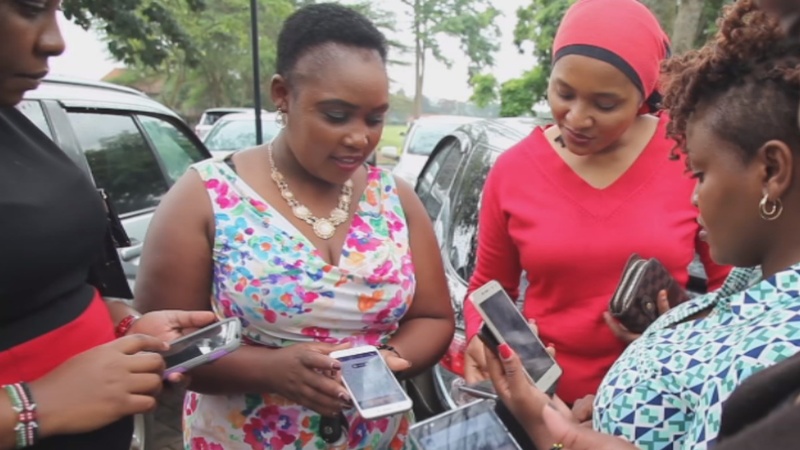
As Kenyans’ use of smartphones increase, so does development of home-grown apps
Kenyans’ increased use and adoption of smartphones has fueled the development of home-grown mobile apps to perform various tasks.

From paying fare and electricity bills to borrowing money, hailing taxis, and searching for a house, Kenyans have apps that help them solve nearly every problem.
The number of apps developed locally has been on the rise in the last a few years as east African nation citizens embrace smartphones in droves.
About 67 percent of mobile phones sold in Kenya are smartphones, according to online firm Jumia, with Kenyans using the phones to access the internet.
The smartphones for Kenyans are the devices of choice in accessing the internet, beating tablets, laptops and desktop computers.
As of September 2018, the total number of active internet subscriptions stood at 42.2 million, up from 41.1 million in June, according to the Communication Authority of Kenya.
Of the total, the number of mobile internet subscriptions was 41.8 million. App developers are, therefore, leveraging on the popularity of smartphones to solve Kenyan problems.
Commercial banks in the east African nation are among the leading developers of apps as they push their services online.
Kenya Commercial Bank, Barclays Bank, Equity Bank and Cooperative Bank, among others, all have mobile apps that enable Kenyans to check their bank account deposits, transfer money and borrow at the click of a button.
The banks are recording roaring success with the apps as the number of borrowers more than double.
In the transport sector, one of the latest apps seeks to help Kenyans stop the habit of public bus conductors failing to give commuters change.
“Save your change in M-Koin and pay fare using it without any worries,” Sidian Bank, the developers of the app, said on Friday in an online promotion.
Travelers going upcountry from Nairobi or vice versa can now be linked directly to private motorists heading to the same routes through an app dubbed NipeLift.
The app links drivers who have empty seats with passengers looking for convenient, faster and safer rides.
Drivers on the app, however, do not make a profit since Kenyan laws prohibit non-public transport vehicles from carrying passengers for gain.
Boniface Githinji, CEO of Sematime Ltd, the developers of the mobile app, noted that they came up with the service to enable travelers to get safer riders, especially during peak seasons when public transport vehicles become scarce.
With so many apps in development in Kenya, it can be challenging for any particular app to stand out. Mercy Rop, a digital marketer at Legibra Solutions, says the best way developers can ensure an app is downloaded is by making an app that solves a problem or adds value in the lives of users.
Rop categorizes the apps being developed in Kenya and other parts of the world as utility apps, discovery apps, social connection apps, gaming and branded applications.
“App users are leveraging on the high penetration of smartphones, focusing on mobile applications which add value to the consumers’ lives while enhancing the long-term engagement,” she said.






